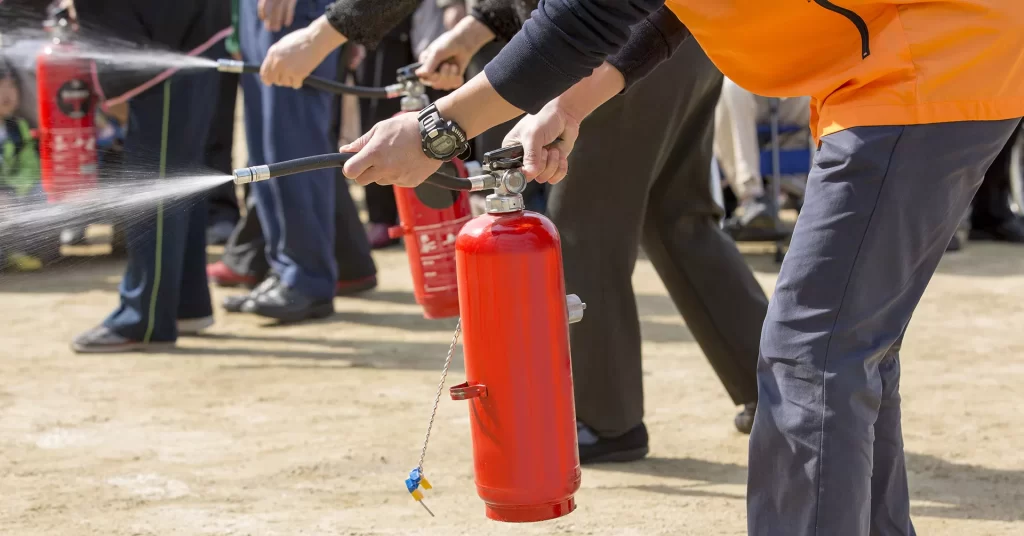Optimizing Area Warden Training Through Proven Techniques is a comprehensive process for ensuring that area wardens are equipped with the most up-to-date training. The process consists of three stages.
First, a comprehensive evaluation of the current training program must be conducted. This involves assessing the strengths and weaknesses of the current program, as well as identifying areas of improvement. Second, best practices and proven techniques must be applied to the current training program in order to ensure that it meets the standards of a modern training program.
Finally, ongoing monitoring and evaluation must be conducted in order to ensure that the training program remains effective. By following these steps, organizations can ensure that their area wardens are properly trained and equipped to handle their duties.
There are several proven techniques that can be used to optimize area warden training, including:
Simulation training: This involves using realistic simulations to replicate emergency situations that area wardens may encounter. This allows them to practice their response skills in a controlled environment.
- Role-playing: This technique involves having trainees act out different scenarios with other trainees or instructors, allowing them to practice their communication and decision-making skills.
- Case studies: Reviewing case studies of real-life emergency situations can help trainees understand how to handle different types of incidents and make better decisions.
- Drills: Regular drills can help trainees maintain their emergency response skills and stay familiar with emergency protocols.
- Ongoing training: Regular refresher training and updates to emergency protocols can help ensure that area wardens are prepared to respond to new types of incidents.
It is also important to involve expert and experienced trainers who can provide appropriate and relevant information to the trainees.
Essential Warden Training Strategies
Area warden training is critical to ensure that wardens have the knowledge and skills to take effective action in the event of an emergency. It is important for wardens to be familiar with the relevant legislation, and to have a good understanding of the roles, responsibilities, and duties of wardens in order to carry out their duties effectively.
- Emergency response planning and procedures: Trainees should be familiar with emergency response plans and procedures, including evacuation procedures, fire safety, and emergency communication protocols.
- First aid and CPR: Area wardens should be trained in basic first aid and CPR so they can provide immediate medical assistance if necessary.
- Incident management: Trainees should learn how to manage incidents, including how to assess the situation, communicate effectively with emergency personnel and other stakeholders, and make appropriate decisions in a crisis.
- Risk assessment: Trainees should be familiar with the various risks present in their work environment, including natural hazards, chemical spills, and other potential emergencies.
- Communication skills: Effective communication is critical during an emergency, so trainees should be taught how to communicate effectively with a variety of people, including emergency responders, building occupants, and the media.
- Leadership and decision-making: Area wardens are often the first responders on the scene and must be able to make quick decisions in a crisis. Training should focus on developing leadership and decision-making skills.
- Cultural competency and diversity: Trainees should be educated on the cultural and diversity aspects of their workplace to respond to a wide range of people effectively.
- Training should be regular and ongoing: As emergency situations and protocols change regularly, it’s essential to keep trainees up to date with new procedures, technology and best practices.
Training should include the latest strategies and techniques for responding to emergency situations, as well as practical drills and simulations. It is essential for wardens to keep up-to-date with their training so that they can respond to an emergency in the most effective and timely manner.
To sum up, area warden training is essential for any organization with a focus on safety and preparedness. By optimizing area warden training through proven techniques such as mentorship, education, and simulation, organizations can ensure that their wardens are well-equipped to handle any emergency situation that could arise. Through this optimization, area wardens can be confident that they are prepared to respond and protect the people in their care, no matter what emergency arises.












